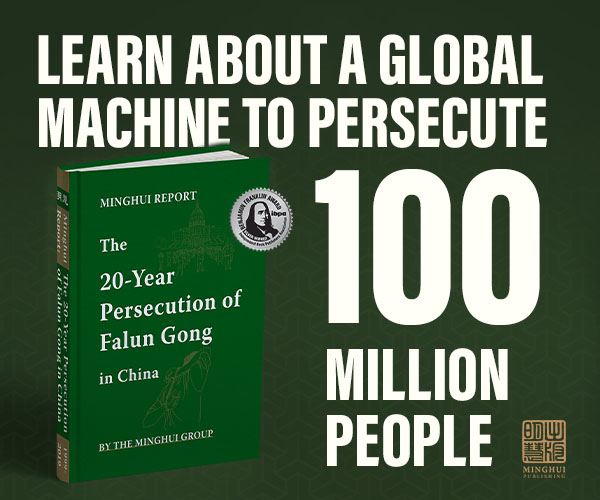(Minghui.org) The cultivation state of us Dafa disciples directly represents the image of Falun Dafa. If we cultivate ourselves well, we are validating the Fa in our daily life and helping sentient beings see the beauty of Dafa. But if we do poorly, we may hurt the chance of sentient beings being saved.
One time, a fellow practitioner and I went to tell an elderly fellow practitioner Qiang something. We left in less than ten minutes after delivering the message to him (due to phone surveillance in China, we had to communicate this way in order to protect our own safety). Five minutes after we left, the police came. We later realized that we were reported by Qiang’s neighbor.
Two years ago, there was a boundary dispute between Qiang and his neighbor. They had a fight and Qiang scolded the neighbor. After that, the neighbor often badmouthed Dafa in front of other villagers and caused very negative impacts.
Later, fellow practitioners advised Qiang to apologize to his neighbor, but he did not do it. When a few other practitioners later went to work in Qiang’s village and tried to clarify the facts about Dafa, they encountered resistance from their coworkers and other villagers, who all said how hard Dafa practitioners like Qiang fought for their personal gain and couldn’t suffer any losses.
The property line between Qiang’s and his neighbor’s houses may not have been clearly marked and Qiang may have felt being taken advantage of by his neighbor. Qiang was not able to let go of his attachments to personal interests, failed to view himself as a cultivator, and felt upset being taken advantage of. He did not pass this test well and made it harder for his fellow villagers to see the goodness of Dafa.
In fact, Qiang is relatively diligent in his cultivation. He had strong righteous thoughts and negated the persecution when being arrested or harassed. But just because he didn’t do well on the boundary dispute issue, it hindered those around him from being saved.
Another fellow practitioner liked to take advantage of others. When she passed other people’s fields, she would pick some of their vegetables or fruits. When she bought stuff at the market, she would also like to take more than what she paid for. She does not have a good reputation among the villagers. Others even asked us, “Why do you allow her to be a Dafa practitioner?”
But this fellow practitioner also did well when counteracting the persecution. When she was arrested, she was able to let go of the attachment to life and death and remained firm in her cultivation. But when she was not in detention, she began to make mistakes due to her selfish desire.
I also know a third practitioner who frequently went to local fairs to talk to people about Falun Dafa. She always talked to people for a long time, regardless of whether they wanted to listen or not. She felt good about herself, without knowing that others thought she was mentally ill.
Of course, there are many practitioners who cultivate well and leave good impressions on others. One married couple in one village are both farmers. They plant acres of crops with good yields each year. They also help other farmers whenever they need without asking for any compensation. People all know that they are good people because of practicing Dafa.
When their son got married last year, every villager came to the wedding, including the elderly who rarely ventured out of their houses. Although the weather forecast predicted heavy rain that day, the sun came out after only a few drops of rain. Most of the villagers had already done their three withdrawals (quitting the Chinese Communist Party and its two junior organizations). Many also often recite the auspicious phrases “Falun Dafa is good; Truthfulness-Compassion-Forbearance is good.”
Other fellow practitioners in that village also did well. When it was harvesting time, they came out to help others, using their own deeds to validate Dafa and save sentient beings.
I want to remind fellow practitioners that we Dafa cultivators are living media, and people look at our actions more so than our words. If we don’t do well, not only do we fail to save others, but we may also ruin our own prospect of completing cultivation. We are the only hope of salvation for the sentient beings. Let us cherish our opportunities and do better.
Editor’s note: This article only represents the author’s current understanding meant for sharing among practitioners so that we can “Compare with one another in study, in cultivation.” (“Solid Cultivation,” Hong Yin)
Views expressed in this article represent the author's own opinions or understandings. All content published on this website are copyrighted by Minghui.org. Minghui will produce compilations of its online content regularly and on special occasions.
Category: Improving Oneself










